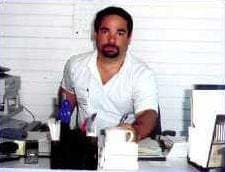
Curated with aloha by
Ted Mooney, P.E. RET

The authoritative public forum
for Metal Finishing 1989-2025

-----
Adhesion of identification coating to high hardness steel
We are manufacturing (stamping) a family of parts for an automotive customer. Our customer has requested that we plate certain parts for identification. We are currently plating the parts with .0002" zinc and clear chromate. Our customer has had problems with the coating flaking. The substrate is 1050 steel heat treated to Rc 48-52. We submitted black oxide samples, but our customer felt they were not as distinguishable as the zinc. Is there any platings / coatings that will have good adhesion to high hardness zinc that can be used for identification? Corrosion protection is not a concern. Thanks. Sincerely,
Paul Clausius- Lake Geneva, Wisconsin
1999
It is very difficult to trouble shoot plating problems without watching the process and being able to see the parts.
Flaking sounds like a problem with the cleaning or activation step rather than the plating step. Two tenths is not much, but since it is only cosmetic, it should be adequate.
Really hard steels are normally oil quenched and have quite a bit of carbon crust on the surface which takes some significant cleaning to get clean enough to plate.(and not have it flake) Consider a type of grit blast possibly followed by a tumble step followed by a pressure wash then going into the normal plating cycle.
Automobile work is cut throat work. jewelry quality demanded at free prices. It is difficult to say what will fit into the budget. I doubt if any plating process will work with no problems.
Try to find a plater that still uses a cyanide caustic cleaner and a cyanide zinc. Cyanide is a fantastic cleaner.
- Navarre, Florida
1999
Paul, it would seem to me that if you asked your plater to plate these parts it should be his responsibility to provide you with a quality product. James is right, that type of part may have carbon or an oil film but that shouldn't preclude your plater from doing his job properly.
As far as an alternative to zinc...you don't get much cheaper than that for what you need. Although we don't compete in this market I know platers that are doing this type of bulk work for very competitive prices.

Jim Conner
Anoplex Software
Mabank, Texas USA

1999
1999
Hi Paul ,
I reckon your problem is that your plater is using a cyanide zinc solution and his cleaning is not removing the carbon from the surface, for best results he should be using a Chloride Zinc solution , and preparing the surface as follows :-
Soak Clean
anodic Clean
Rinses
Acid Etch in 25 % HCl With Inhibitors
Rinses
Desmut in an Alkaline desmut ( Anodic @ 25 ASF , 60C+ , 2 minutes)
Rinses
5% HCl dip
Zinc Plate
This system provided it is maintained properly will give good adhesion . regards

John Tenison - Woods
- Victoria Australia
Q, A, or Comment on THIS thread -or- Start a NEW Thread